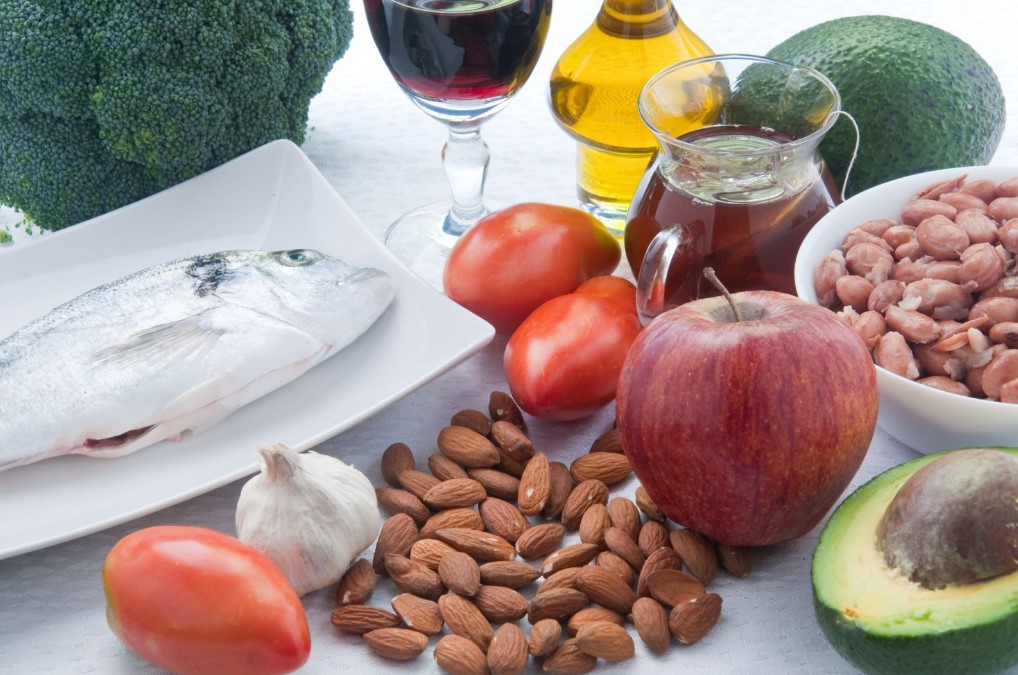
Cholesterol control food.
Introduction:
Overseeing cholesterol levels is urgent for keeping up with ideal wellbeing, especially with regards to forestalling coronary illness. In this article, we explore the world of cholesterol control food and the significance of informed dietary choices. From understanding the different types of cholesterol to uncovering the impact of nutrition on cholesterol management, we provide insights into what to eat for a healthier life. Join us on this journey to enhance your knowledge and prioritize your well-being.
A coronary episode happens when the veins that regularly supply blood to the heart become hindered. A number of factors have been identified behind the blockage of these blood vessels.
5 reasons behind blocked blood vessels
Cholesterol
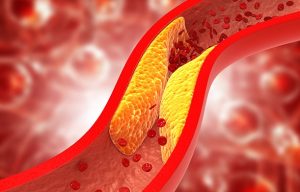
Cholesterol plays a significant role in the formation of blocked blood vessels. Lopsided characteristics in cholesterin levels can prompt the development of plaques, blocking the progression of blood and expanding the gamble of cardiovascular confusions. Understanding this connection is crucial for prioritizing heart health and implementing effective preventive strategies.
High blood pressure

Hypertension, otherwise called hypertension, is a significant supporter of impeded veins. Tireless raised pulse can harm the inward walls of corridors, prompting the development of plaques and limiting of veins. Understanding this connection is vital for managing hypertension and reducing the risk of cardiovascular complications.
Diabetes
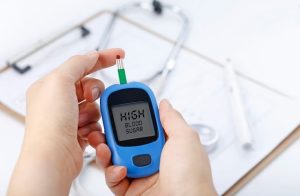
Diabetes, a chronic metabolic disorder, significantly increases the risk of blocked blood vessels. Tirelessly high glucose levels in diabetes can harm the veins' coating, advancing the arrangement of plaques and limiting of conduits. Recognizing the connection between diabetes and blocked blood vessels is essential for effective management and prevention of cardiovascular complications.
Smoking, drinking

The habits of smoking and excessive alcohol consumption can contribute to the development of blocked blood vessels. Smoking harms vein walls and speeds up the development of plaques, while weighty drinking raises pulse and advances coagulating, both expanding the gamble of cardiovascular entanglements. Understanding these connections is crucial for promoting heart health and making informed lifestyle choices.
Hereditary factors

Genetic variables can assume a critical part in the improvement of obstructed veins. Hereditary inclinations, for example, familial hypercholesterolemia or acquired blood coagulating messes, can improve the probability of plaque development and restricting of veins. Recognizing the influence of hereditary factors is essential for early detection, intervention, and personalized management of cardiovascular health.
Individuals who smoke and drink liquor are at a lower risk. Coronary artery disease or block is very common from diabetes. Assuming that hypertension is uncontrolled, it can prompt vein blockage. Our lack of physical activity, lack of exercise, eating fatty foods, high cholesterin can lead to blood vessel blockage.
Today we will have close to zero insight into cholesterol, one of the primary drivers of coronary episodes.
What is cholesterol?
Cholesterol is a fat-like substance that our body creates normally. It is fundamental for different physiological capabilities, including the arrangement of cell layers and the creation of specific chemicals, vitamin D, and bile acids. In the event that our body delivers more cholesterin than it needs, or on the other hand on the off chance that we devour it through food, the cholesterol level in the body can be high. Since our body frequently can't make changes as indicated by its own creation.
Cholesterol is insoluble in water, so it tends to be effortlessly shipped all through the body by means of the blood as lipoproteins.
Types of lipoproteins
Lipoproteins are generally of two types –
Low Density Lipoprotein / LDL (Low Density Lipoprotein)

LDL, a kind of lipoprotein, is responsible for carrying cholesterol throughout the bloodstream. LDL particles, which are sometimes referred to as "bad cholesterol," can aid in the development of artery plaque. High LDL levels increment the gamble of cardiovascular sicknesses by making additional cholesterol develop in the course walls, which limits the veins. Unhealthy eating habits, a sedentary lifestyle, obesity, and genetic predisposition are all linked to elevated LDL levels. Maintaining heart health requires careful monitoring and management of LDL cholesterol since it lowers the risk of artery blockages and associated cardiovascular problems.
When the body needs cholesterin, LDL delivers it. Be that as it may, on the off chance that there is an extreme measure of LDL in the course, it gradually combines with the supply route or vein walls. Plaque then accumulates, narrowing those blood vessels and obstructing blood flow to the heart, which causes a heart attack. This is why LDL is called bad cholesterin. Some foods that increase bad cholesterol are –
Ghee

Ghee, a clarified butter commonly used in South Asian cuisine, can increase levels of bad cholesterol (LDL) when consumed in excessive amounts. Ghee is wealthy in soaked fats, which can raise LDL cholesterin levels and possibly add to the advancement of obstructed veins and cardiovascular sicknesses.
Butter

Spread, a dairy item got from milk, contains elevated degrees of soaked fats that can expand levels of terrible cholesterol (LDL). Consuming margarine in over-the-top sums can add to raised LDL cholesterin, which is related with an expanded gamble of hindered veins and cardiovascular sicknesses.
Dalda

Dalda, a brand of vegetable ghee commonly used in cooking, contains trans fats that can increase levels of bad cholesterol (LDL). Regular consumption of Dalda or other products high in trans fats can raise LDL cholesterin and contribute to the development of blocked blood vessels and cardiovascular diseases.
Processed foods

Handled food sources, like pre-bundled snacks, sweet treats, and inexpensive food, frequently contain high measures of unfortunate fats, refined sugars, and added substances. Normal utilization of these food varieties can prompt expanded degrees of awful cholesterol (LDL), advancing the advancement of impeded veins and cardiovascular illnesses.
Hi margarine

Margarine, a butter substitute made from vegetable oils, can increase levels of bad cholesterin (LDL) when it contains trans fats or hydrogenated oils. These unhealthy fats raise LDL cholesterol and contribute to the risk of blocked blood vessels and cardiovascular diseases. Opting for healthier alternatives like plant-based spreads is recommended.
Fat of beef-cow-pig

The fat from hamburger, cow, and pig, regularly alluded to as creature fat, contains immersed fats that can build levels of awful cholesterin (LDL). Consuming inordinate measures of creature fat can add to raised LDL cholesterol, which is related with a higher gamble of obstructed veins and cardiovascular illnesses.
High Density Lipoprotein / HDL (High Density Lipoprotein)

The lipoprotein known as high-density lipoprotein (HDL) is frequently referred to as "good cholesterol." The liver is where cholesterol is metabolised and excreted after being removed from the body's tissues by HDL particles. High levels of HDL are linked to a lower risk of cardiovascular disease than low-density lipoprotein (LDL). The removal of extra cholesterin from the arteries by HDL helps to maintain good blood vessel function by reducing plaque development. HDL levels can rise as a result of things like consistent exercise, a balanced diet, moderate alcohol use, and quitting smoking. Increasing HDL cholesterol is considered beneficial for overall cardiovascular health and reducing the risk of blocked blood vessels.
HDL is called good cholesterol because it carries excess cholesterol in the bloodstream back to the liver where it can be broken down and destroyed. A lot of HDL forestalls plaque develop in the supply routes, consequently diminishing the gamble of cardiovascular failure. Some good cholesterol foods are –
Olive oil

Olive oil is often regarded as a beneficial source of fat that can promote good cholesterin levels (HDL). It has monounsaturated fats, which might assist with raising HDL cholesterol while bringing down LDL cholesterol, which is unsafe cholesterol. A fair eating regimen that incorporates olive oil might assist with keeping veins solid and lower the gamble of cardiovascular issues. It is important to opt for extra virgin olive oil, which undergoes minimal processing and retains the highest nutritional value.
Beans

Beans are a great source of dietary fiber, plant-based protein, and different minerals. Examples of beans are kidney beans, black beans, and chickpeas. They are regarded as foods low in bad cholesterin since they can help raise HDL (high-density lipoprotein) cholesterol levels. The soluble fiber in beans can help lower levels of bad cholesterol (LDL) and provide a more favourable balance. By substituting beans for higher-fat animal protein sources in your diet, you can improve your heart health and lower your chance of developing clogged blood arteries and cardiovascular disorders.
Whole grains (oats, brown rice, red flour bread)

Oats, brown rice, and whole wheat bread are excellent options for boosting high-density lipoprotein (HDL) cholesterol. Dietary fiber, which is plentiful in numerous food varieties, can assist with raising HDL cholesterin and lower LDL cholesterol levels. A particular kind of fiber called beta-glucan, which is well known for decreasing cholesterol, is found in particular in oats. Whole grains can support cardiovascular health, enhance blood vessel function, and lower your risk of cardiovascular illnesses. For the best cholesterol management and overall health, choose whole grain alternatives over refined grains.
High fiber fruits (apples, pears, potatoes)

Natural products with a high fiber content, like apples, pears, and potatoes, may be considered food varieties that lower cholesterol. These organic products are high in solvent fiber, which can assist with raising degrees of HDL cholesterol and lower levels of LDL cholesterol. In the gastrointestinal system, solvent fiber changes into a gel-like substance that can tie to cholesterin and dispense with it from the body. High fiber fruits can help you maintain a healthy cholesterol balance, strengthen your heart, and lower your risk of blood vessel blockages and cardiovascular disorders. To benefit from the fiber in fruits, keep in mind to eat them whole.
Fish rich in Omega 3 (salmon, tuna and some other marine fish)

Salmon, tuna, and other marine fish that are high in omega-3 fatty acids are fantastic options for raising HDL levels. Omega-3 fatty acids have been found to raise HDL cholesterol and lower levels of triglycerides and bad cholesterin (LDL). Fatty fish can support heart health, enhance blood vessel function, and lower the risk of cardiovascular disorders when consumed regularly. By remembering these fish for your eating regimen, you'll have a significant wellspring of omega-3 unsaturated fats, which will work on your general wellbeing and cholesterol profile.
Nuts

Nuts, like almonds, pecans and pistachios, are viewed as phenomenal wellsprings of sound fats and may assist with bringing HDL steps up in the blood. Omega-3 unsaturated fats, which are seen as in nuts, are among the monounsaturated and polyunsaturated fats that can assist with raising the HDL to LDL cholesterin proportion. As a snack or supplement to meals, including a variety of nuts in your diet can improve heart health, lessen inflammation, and lower your risk of cardiovascular illnesses. Because of their fatty substance, nuts ought to be eaten with some restraint.
Chia Seeds (Chia Seeds)
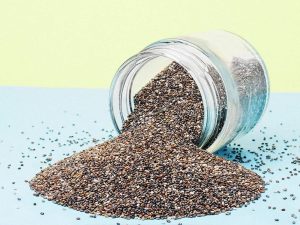
Chia seeds are minuscule, supplement rich seeds that can assist with further developing heart wellbeing by raising degrees of HDL, or "great" cholesterol. These seeds are an extraordinary wellspring of fiber, plant-based protein, and omega-3 unsaturated fats. These supplements cooperate to expand levels of good cholesterol (HDL) while bringing down degrees of awful cholesterin (LDL). Antioxidants included in chia seeds have extra advantages for the heart. Chia seeds can be a quick and easy approach to improve your diet, support your cardiovascular system, and promote a good cholesterol profile. You can sprinkle them on yoghurt, muesli, or add them to smoothies.
Tofu and other soy-based foods
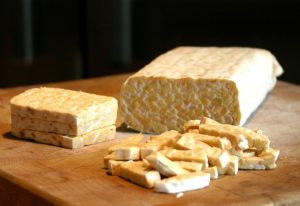
Tofu and other soy-based meals are fantastic options for raising levels of HDL, or "good" cholesterol. The plant-based proteins, fiber, and isoflavones found in soy items like tofu, tempeh, and edamame have been connected to benefits for cardiovascular wellbeing. According to studies, eating foods containing soy may help elevate HDL levels and enhance one's lipid profile. Tofu and other soy-based foods can help improve heart health and lower the risk of blood vessel blockages and cardiovascular illnesses when included in a balanced and varied plant-based diet.
Conclusion
For the purpose of enhancing cardiovascular health and maintaining appropriate cholesterol levels, making informed dietary decisions is essential. We can further develop our cholesterol profile by devouring cholesterin-accommodating food sources including olive oil, vegetables, entire grains, high-fiber natural products, fish wealthy in omega-3 unsaturated fats, nuts, chia seeds, and soy-based feasts.
In any case, it's vital to remember that keeping a sound weight, keeping away from unfortunate things to do, and taking part in standard active work are all important for a comprehensive way to deal with heart wellbeing. We can lower the chance of blood vessel blockages and enhance general cardiovascular health by adopting a balanced diet, exercising frequently, and making smart lifestyle decisions.
Read More Articles
Instagram Twitter Facebook LinkedIn Quora Google News
Our Other Engagements:


https://livewithgreen.com/cholesterol-control-food/
.jpg)